Humans
Sign up for our newsletter
We summarize the week's scientific breakthroughs every Thursday.
-
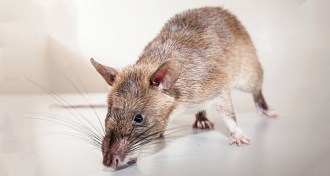 Animals
AnimalsWith a little convincing, rats can detect tuberculosis
TB-sniffing rats prove more accurate in detecting infection, especially in children, than the most commonly used diagnostic tool.
By Yao-Hua Law -
 Humans
HumansThe window for learning a language may stay open surprisingly long
A crucial period for language learning may extend well into teen years, a new study suggests.
By Bruce Bower -
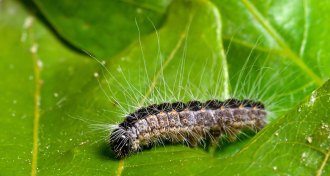 Animals
AnimalsThese caterpillars march. They fluff. They scare London.
Oak processionary moths have invaded England and threatened the pleasure of spring breezes.
By Susan Milius and Aimee Cunningham -
 Health & Medicine
Health & MedicineIs it an invasion of your kids’ privacy to post pictures of them on social media?
Growing up in an online world doesn’t mean that kids don’t care about privacy. Parents should keep this in mind when posting pictures of their kids to social media.
-
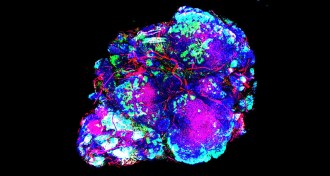 Health & Medicine
Health & Medicine50 years ago, starving tumors of oxygen proposed as weapon in cancer fight
Starving cancerous tumors of oxygen was proposed to help kill them. But the approach can make some cancer cells more aggressive.
-
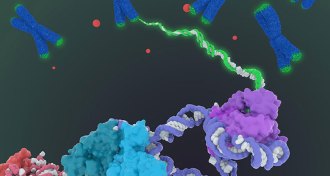 Health & Medicine
Health & MedicineAn enzyme involved in cancer and aging gets a close-up
The structure of telomerase, described with the greatest detail yet, may give researchers clues to cancer treatments and other telomerase-related illnesses.
-
 Genetics
GeneticsAdapting to life in the north may have been a real headache
A cold-sensing protein has adapted to different local climates, also affecting risk of migraine.
-
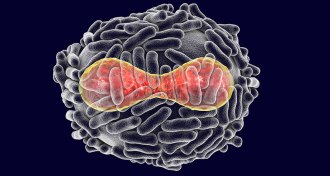 Health & Medicine
Health & MedicineFDA approves the first smallpox treatment
Concerns about bioterrorism fueled the development of the first treatment for smallpox.
-
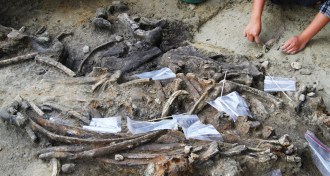 Anthropology
AnthropologyButchered rhino bones place hominids in the Philippines 700,000 years ago
Stone tools and butchery marks point to an ancient hominid presence on islands in the Philippines.
By Bruce Bower -
 Health & Medicine
Health & MedicineSynthetic opioids involved in more deaths than prescription opioids
Winning a ghastly contest, synthetic opioids become most common drug involved in U.S. overdose deaths, bypassing prescription opioids in 2016.
-
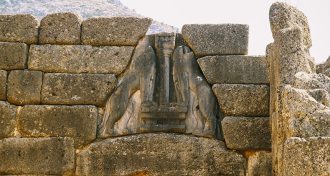 Archaeology
ArchaeologyHow a backyard pendulum saw sliced into a Bronze Age mystery
A saw no one has seen may have built Bronze Age Greek palaces.
By Bruce Bower -
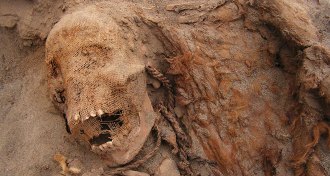 Anthropology
AnthropologyAnthropologists in Peru have unearthed the largest known child sacrifice
The largest known mass sacrifice of children occurred around 550 years ago in the Chimú empire in Peru.
By Bruce Bower